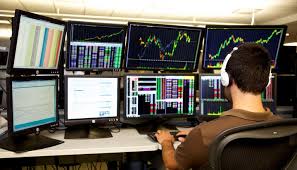Proprietary trading, often referred to as “prop trading,” is a unique and potentially lucrative venture in the world of trading. It involves financial firms using their own capital, rather than client funds, to trade financial instruments such as stocks, bonds, currencies, and derivatives. Whether you’re an aspiring trader looking to break into the field or a professional aiming to refine your strategies, understanding prop trading can open doors to exciting opportunities.
What Is Prop Trading?
At its core, prop trading is when a financial institution or a prop trading firm trades for direct market gain instead of earning commissions through client trades. These entities place their own money at risk, striving to profit from market fluctuations. Prop traders often gain access to advanced tools, significant capital, and professional training, which can give them an edge over retail traders.
The key attraction to prop trading? The potential for substantial rewards. With firms usually offering profit-sharing arrangements, traders can earn a percentage of the profits they generate.
Common Strategies Used in Prop Trading
Prop traders use unique strategies to capitalize on market opportunities. Here are a few popular approaches:
1. Scalping: This strategy focuses on making quick trades to capitalize on small price changes, aiming for a high volume of small profits.
2. Arbitrage: Traders seek opportunities to exploit price discrepancies for the same asset in different markets or forms.
3. Swing Trading: By analyzing short to medium-term trends, swing traders aim to capture significant price movements over days or weeks.
4. Market Making: Prop traders provide liquidity by quoting both buy and sell prices for a particular asset, profiting from the spread.
The Opportunities in Prop Trading
Prop trading offers access to significant resources, including industry-grade software, deep market insights, and mentorship programs, particularly valuable for fresh traders. Additionally, it provides the opportunity to trade with less personal financial risk, as traders are not risking their own capital.
